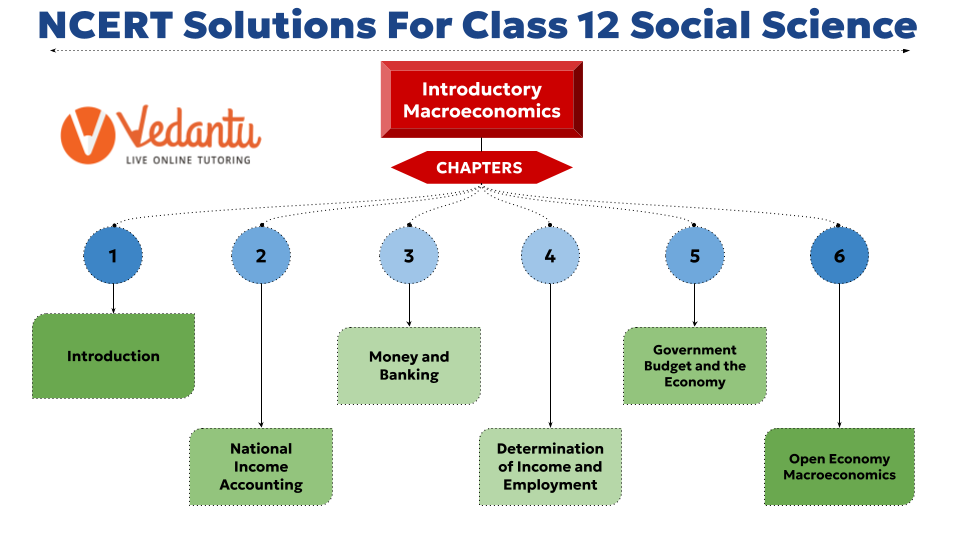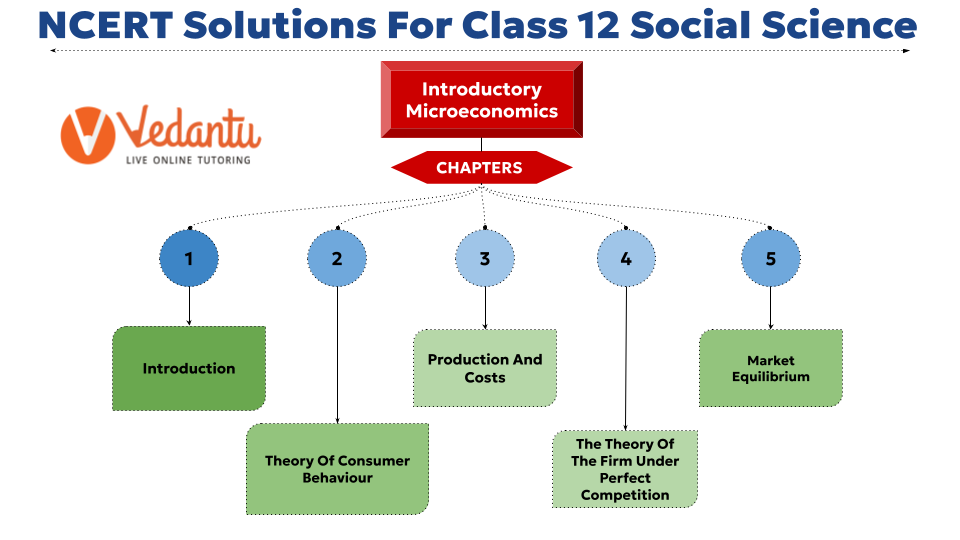Chapter-wise Class 12 Economics Questions and Answers Free PDF Download
FAQs on NCERT Solutions For Class 12 Economics (2025-26)
1. Where can I get reliable and updated NCERT Solutions for Class 12 Economics for the 2025-26 session?
You can find comprehensive and expert-verified NCERT Solutions for Class 12 Economics directly on Vedantu. These solutions are meticulously prepared by master teachers and are fully aligned with the latest CBSE 2025-26 curriculum, ensuring you receive the most accurate and relevant guidance for your board exam preparation.
2. Do these NCERT Solutions cover all the prescribed Class 12 Economics textbooks?
Yes, the NCERT Solutions provided by Vedantu offer complete coverage for all prescribed Class 12 Economics textbooks. This includes detailed, step-by-step answers for all questions in:
- Introductory Macroeconomics
- Introductory Microeconomics
- Indian Economic Development
This ensures a holistic preparation covering the entire syllabus.
3. How are the Vedantu NCERT Solutions for Class 12 Economics structured to align with the latest CBSE syllabus for 2025-26?
Our NCERT Solutions are structured chapter-by-chapter, exactly matching the sequence and content of the official 2025-26 NCERT textbooks. Each solution is crafted following the CBSE guidelines for marking and answer presentation, focusing on clarity, key-term usage, and step-wise explanations to help you score better.
4. How do the NCERT Solutions explain the step-by-step method for solving numerical problems, for instance, those related to National Income Accounting (GDP)?
The solutions provide a detailed, step-by-step breakdown for every numerical problem. For a concept like National Income Accounting, the answer will clearly list:
- The formula required for the calculation.
- Identification and listing of given values.
- Step-by-step substitution of values into the formula.
- The final calculated answer with the correct units.
This method helps you understand the logic, not just the answer, and minimises errors.
5. Why is it important to follow the precise step-by-step methodology provided in NCERT Solutions when answering theory questions in the board exams?
Following a precise, step-by-step methodology is crucial because it aligns your answers with the CBSE marking scheme. Examiners look for specific keywords, logical structure, and well-explained points. Well-structured solutions teach you how to break down a complex question into parts—like definition, explanation, examples, and conclusion—ensuring you cover all aspects required for full marks.
6. How do these solutions help clarify common points of confusion between related concepts, such as the difference between 'Money Supply' and 'High-Powered Money'?
Our NCERT Solutions are designed to address such conceptual ambiguities. When explaining concepts like Money Supply and High-Powered Money, the answers first define each term clearly. Then, they highlight the key differences by focusing on their components and scope. For example, a solution would clarify that High-Powered Money is the base of money creation, while Money Supply is the total stock of money in circulation, thus preventing common exam errors.
7. Beyond providing final answers, how do NCERT Solutions for Class 12 Economics help in developing the problem-solving approach needed for diagram-based or case-study questions?
These solutions build analytical skills by not just giving the answer but explaining the 'how' and 'why'. For diagram-based questions, the solutions explain how to correctly draw and label diagrams like the Production Possibility Frontier (PPF) or supply-demand curves, and how to interpret shifts. For case studies, they demonstrate how to extract relevant information and apply economic theories to a real-world scenario, a skill essential for high scores.
8. Are the NCERT Solutions updated to reflect the chapters and topics removed from the Class 12 Economics syllabus for the 2025-26 academic year?
Absolutely. Our NCERT Solutions are consistently updated to be in full compliance with the latest CBSE syllabus for 2025-26. All solutions correspond only to the topics and chapters that are currently part of the curriculum. Any content that has been removed, such as the 'Non-Competitive Markets' chapter from Microeconomics, is excluded to ensure your preparation is focused and relevant.
9. How can using NCERT Solutions help a student move from just memorising definitions to actually applying economic principles like the 'Law of Demand' or 'Law of Supply'?
NCERT Solutions facilitate this shift by contextualising every concept. For a principle like the Law of Demand, the solutions don't just state the law. They provide solved examples, explain its assumptions and exceptions, and often use hypothetical numerical data or graphs to demonstrate its real-world application. This approach ensures you understand the underlying logic, enabling you to apply these principles to unfamiliar questions in the exam.
10. Are the Class 12 Economics NCERT Solutions available in a chapter-wise format, and can they be accessed for offline study?
Yes, the NCERT Solutions for Class 12 Economics on Vedantu are organised in a clear, chapter-wise format for easy navigation. You can select the specific chapter you are studying to find all its textbook solutions. The solutions are available online, and you can also download them to use offline, allowing for flexible and uninterrupted study anytime, anywhere.


























